Fritextsökning
Artiklar per år
Innehållstyper
-

“An entire industry is about to be wiped out”
According to Jennie Ekbeck, CEO of Umeå Biotech Incubators, Sweden risks not having any small diagnostic companies left in five years.
-

How critical are the “Spermageddon” reports? – Researchers call for action
A much talked about meta-study indicates that sperm concentration in men’s seminal fluid has halved in 40 years. Experts in andrology that Life Science Sweden speaks to believe that the results must be taken seriously, and call for action from the Swedish authorities.
-
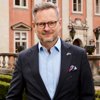
Column: ”Life as a F1 race”
"The F1 car makes several pit stops during a race and during a lifetime the human being may also have to come in several times for maintenance", Björn Ursing writes in a column.
-

Editorial: ”AI that both impresses and frightens”
”In the past, I've rarely been particularly impressed by something that was produced by AI. But this is something completely different”, Samuel Lagercrantz writes in an editorial.
-

Hello Jenni Nordborg!
Life Science Sweden would like to know more about Jenni Nordborg and asks her about her new job, why she became a chemical engineer and who her role model is.
-

Rapid development in blood analysis – “Sweden is leading the race”
Thousands of analytical tests using just one single drop of blood. What was revealed as a hoax just a few years ago is now a reality, according to KTH professor and serial entrepreneur Mathias Uhlén.
-

Column: ”Authentic leadership and clear mandates pave the way for more female CEOs”
”I believe that the aspect of having clear mandates and titles on the one hand and women progressing into top positions must be explored further”, Helena Strigård writes in a column.
-
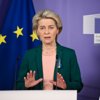
Amerikansk tidning stämmer EU-kommissionen för "mörkade" vaccin-sms
EU:s vägran att lämna ut en sms-konversation mellan Pfizers ledning och EU-kommissionens ordförande Ursula von der Leyen i samband med ett gigantiskt vaccinkontrakt blir nu föremål för rättslig prövning.
-

Individual DNA passport could result in fewer drug side effects
You may be required to show a DNA passport when you pick up medicines at the pharmacy in the future. According to a new study, patients might suffer 30% fewer side effects if the drug treatment is adapted to their genes.
-
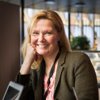
Precision medicine centre: “Extensive activity on several fronts”
Two years ago, the Karolinska Institutet and the Karolinska University Hospital announced that they would jointly launch the Precision Medicine Centre. Medtech Magazine called Anna Wedell, who is heading the work, to find out…
-

He saved lives with his theories – was ostracised and ended up in a mental hospital
Hungarian doctor Ignaz Semmelweis (1818-1865) undoubtedly possessed plenty of persistence, diligence and sound reasoning skills – but he was hardly blessed with luck and timing.
-

“Everyone is screaming for talent”
Attracting talent is one of the life science industry’s major future challenges, which was one of the conclusions of the panel discussion that ended the New Horizons in Biologics & Bioprocessing conference on 15 December.
-
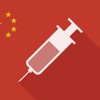
Kina nästa mål för Bioarctics Alzheimerläkemedel
En ansökningsprocess har inletts för att få Alzheimerläkemedlet lecanemab, utvecklat av svenska Bioarctic, marknadsgodkänt i Kina.
-

Jacob Lund blir global presschef för Astra Zeneca
Astrazeneca flyttar upp Jacob Lund till rollen som global presschef. Han är idag bolagets kommunikationsdirektör i Norden.
-
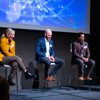
”Alla skriker efter talang”
Att locka till sig begåvningarna är en av life science-branschens stora framtidsutmaningar. Det var en av slutsatserna i det panelsamtal som avslutade konferensen New Horizons in Biologics & Bioprocessing på torsdagen.
-

ALS – When the body has given up, but the brain persists
The nerve disease ALS gradually deprives the patient of control over the muscles and, eventually, also of speech. The eyes continue to function, though, and with the help of, among other things, a Swedish-developed invention, communication with the outside world can continue. “It’s their window to the world,” says ALS researcher Caroline Ingre.
-

“Photon counting in computed tomography is the holy grail”
Erik Fredenberg, a researcher in physics at KTH and GE, is working to implement photon-counting CT in clinics. To shorten lead times and reduce the radiation dose in patients, he is setting out to develop a framework for virtual clinical trials for the technology.
-

Ny ordförande för Atlas Antibodies
Åsa Riisberg, styrelseproffs och tidigare partner i EQT, tar över ordförandeklubban i Atlas Antibodies.
-

Uppmärksamheten kring ALS ger pengar till hennes forskning
Den neuromuskulära sjukdomen ALS har fått stor uppmärksamhet i och med Börje Salmings insjuknande och sedemera dödsfall till följd av sjukdomen. Att hockeylegendaren blev sjukdomens ansikte utåt har också gjort att pengar strömmar in till ALS-forskningen.
-

She creates pharmaceuticals on a 3D printer
The correct dosage for each individual, regardless of whether the pharmaceutical is for a seriously ill child or a frail elderly person, is the mission of a well-advanced project with 3D-printed drugs at Uppsala University. “It will soon be available in clinics”, says Christel Bergström, who is heading the project.
-
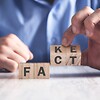
Fritt fram för desinformation om covid-19 på Twitter
Yttrandefrihet ska råda på Twitter, enligt nya ägaren Elon Musk, och nu har regler för att förhindra spridning av desinformation om covid-19 tagits bort.
-
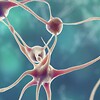
Viss effekt av Alzheimers-behandling bekräftas i studie – Bioarctic stiger på börsen
Nya data bekräftar att Bioarctics läkemedel lecanemab bromsar Alzheimers sjukdom – om än i måttlig utsträckning och med vissa biverkningar. Beskedet fick bolagets aktie att stiga under onsdagsförmiddagens handel.
-
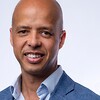
He is zooming in on topical preparations
According to Zelmic CEO David Sagna, topical products in drug development is a growing market, and to keep pace with the development, the company is awaiting approval for its new GMP facility.
-
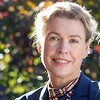
Vårt jobb är att ta höjd för det osannolika
"Rymdfärder och läkemedelsutveckling har många likheter. De är hårt reglerade verksamheter där minsta misstag kan få ödesdigra konsekvenser", skriver Anna Törner i en krönika.